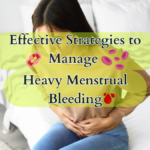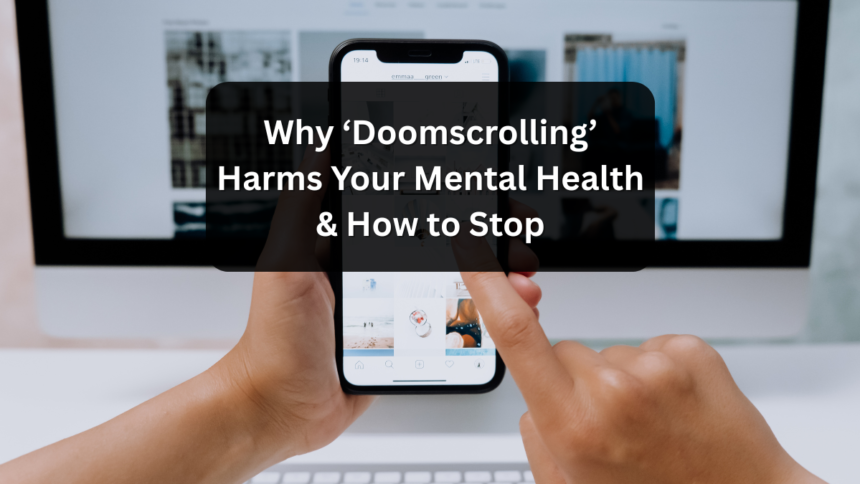Doomscrolling
Before you know it, an hour has passed, your heart is racing, and your mind is filled with anxiety. If this sounds familiar, you’re not alone—you’ve fallen into the trap of doomscrolling.
Doomscrolling is the habit of compulsively consuming negative news or distressing content, often for extended periods. While staying informed is important, excessive exposure to grim headlines can take a serious toll on your mental well-being. In this post, we’ll explore why doomscrolling is so harmful and provide practical tips to break the cycle.

What Is Doomscrolling?
Doomscrolling (or “doomsurfing”) refers to the tendency to continuously scroll through bad news—whether it’s global crises, political turmoil, or personal tragedies—despite feeling worse afterward. Social media algorithms are designed to keep us engaged, often prioritizing shocking or emotionally charged content. This creates a vicious cycle where the more we scroll, the harder it is to stop.
Why Do We Doomscroll?
- The Negativity Bias: Our brains are wired to pay more attention to negative information—a survival mechanism from ancient times.
- The Illusion of Control: We may believe that staying updated will help us prepare for the worst, even when the news is beyond our control.
- Addictive Design: Platforms like Twitter, Facebook, and TikTok use algorithms that feed us endless content, making it difficult to disengage.
How Doomscrolling Affects Your Mental Health
While staying informed is valuable, excessive doomscrolling can lead to:
1. Increased Anxiety & Stress
Constant exposure to distressing news triggers the body’s fight-or-flight response, releasing stress hormones like cortisol. Over time, this can lead to chronic anxiety, sleep disturbances, and even physical health issues.
2. Feelings of Helplessness & Depression
When bombarded with negative events (many of which we can’t control), it’s easy to feel overwhelmed and powerless. This can contribute to feelings of hopelessness and depression.
3. Reduced Productivity & Focus
Doomscrolling eats up time and mental energy, making it harder to concentrate on work, relationships, or self-care.
4. Sleep Disruption
Scrolling through stressful content before bed disrupts melatonin production, making it harder to fall asleep and reducing sleep quality.
Video Credits
How to Stop Doomscrolling: 7 Practical Tips
Breaking the doomscrolling habit isn’t easy, but with conscious effort, you can regain control. Here’s how:
1. Set Time Limits for Social Media
Use app timers (available on iOS and Android) to restrict your daily social media usage. Even 15-30 minutes less per day can make a difference.
2. Curate Your Feed
- Unfollow/Mute Negative Accounts: If certain sources constantly share distressing news, mute or unfollow them.
- Follow Positive or Neutral Content: Balance your feed with uplifting or educational content.
3. Schedule “News Check” Times
Instead of scrolling endlessly, designate specific times (e.g., 10 AM and 6 PM) to check the news. Stick to reputable sources—avoid sensationalist headlines.
4. Practice Mindfulness & Digital Detoxes
- Try the 5-4-3-2-1 Grounding Technique: When you feel anxious from scrolling, pause and name 5 things you see, 4 things you feel, 3 things you hear, 2 things you smell, and 1 thing you taste.
- Take Regular Screen Breaks: Set a rule like “No phones during meals” or “No social media after 9 PM.”
5. Replace Doomscrolling with a Healthier Habit
When you feel the urge to scroll, try:
- Reading a book
- Going for a walk
- Meditating
- Calling a friend
6. Turn Off Notifications
Constant news alerts keep you in a state of hyper-awareness. Disable non-essential notifications to reduce temptation.
7. Seek Support if Needed
If doomscrolling is significantly impacting your mental health, consider talking to a therapist or counselor. Cognitive Behavioral Therapy (CBT) can help break negative thought patterns.
Final Thoughts: Take Back Control
Doomscrolling is a modern-day habit that feeds our anxieties while offering little real benefit. While staying informed is important, your mental health should always come first. By setting boundaries, curating your digital space, and replacing doomscrolling with healthier habits, you can reduce stress and regain a sense of balance.
What’s one small step you’ll take today to cut back on doomscrolling? Share in the comments—we’d love to hear your strategies!










